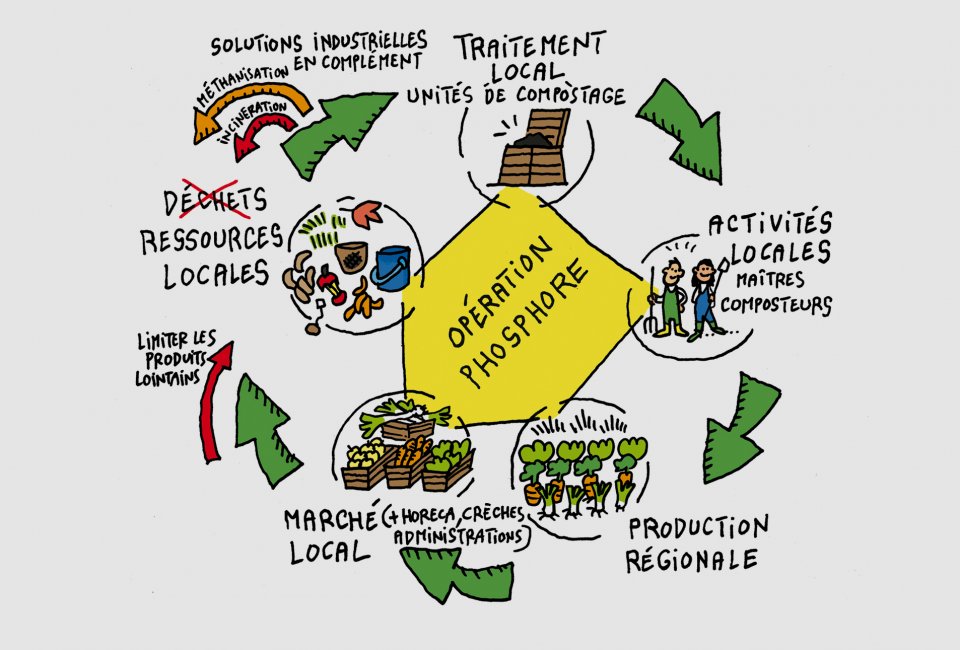
Reforming organic waste management In Brussels
The Project
The Goal
The common objective of all partners is a more coherent and ecological management of organic matter. This objective entails not only circular flows of organic matter between agricultural and urban consumers but also the potential production of energy from biowaste.
Local Task Force
A large group of environmental NGOs were invited to express their views on the topic and participate in the process. The lead stakeholder was the Urban Ecology Centre Brussels, a regional NGO, who worked closely together with another NGO specialised in decentralised composting, Worms asbl. The NGOs were joined by academic partners and the regional administrations in charge of waste and environmental management.
The Process
A network of civil society actors, academic partners and local/regional administrations was established in order to work together towards a profound reform of the way in which the Brussels region manages its organic waste. The platform, called Operation Phosphore, organised several meetings between the participants and recorded two radio programmes that were broadcast on the radio of the University of Brussels. In May 2016 a formal request for funding was submitted to the regional government. The proposal included a three-year work plan for reforming the organic waste management system.
Existing Dynamics
Operation Phosphore builds on the ideas of co-creation that the region of Brussels experimented with since 2015. It is also inspired by the idea of Living Labs in which academics work together with societal actors towards new solutions.
Obstacles
The competences regarding the management of organic waste are attributed to an agency that is independent of the Environmental Agency. This has created some tensions in the past and also hindered to some extent the cooperation within the network, as these two agencies do not necessarily share the same views and follow different strategies.
Resources
The Urban Ecology Centre and Worms absl. provided volunteers that steered the process.
Strokes of Luck
The fact that several members of the Urban Ecology Centre are closely linked to several other stakeholders helped to build the trust that is necessary to establish an informal network that can grow into a formal process.
The Achievements
Short-term Results
The common objective of all partners is a more coherent and ecological management of organic matter. This objective entails not only circular flows of organic matter between agricultural and the urban consumers but also the potential production of energy from biowaste.
Long-term Benefits
Operation Phosphore has created enthusiasm among many partners and is seen as a unique opportunity
to reform a system that is regarded by many as extremely unsustainable but that couldn't be reformed for a long time due to a lack of cooperation, vision and political commitment to alternative solutions. Operation Phosphore could help overhauling the system from its roots and render the flows of organic matter circular - this would be a great achievement.
Key lesson learned - Patrick explains
"On a complex issue such as waste management the recommendations for how to reform the system should not be delegated to experts. It was felt that a platform that brings together different stakeholders, including civil society, academics and public administrations, helps to weigh the options in a governance setting that is superior to subcontracting reform proposals to consultants."
Patrick Van Den Abeele, IBGE/BIM
